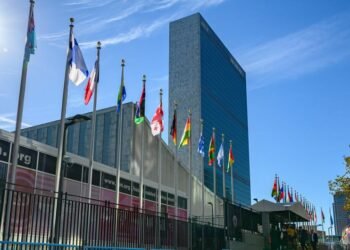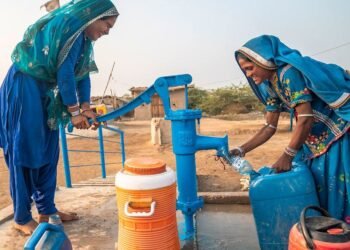Director-General of FAO, QU Dongyu, has underscored the “nexus” between biodiversity, healthy diets and the climate crisis during his address to the World Conservation Congress, currently underway in Marseille, France.
According to the FAO Boss, there is a vital relationship between global food systems and the rapid onset of climate change, biodiversity loss, soil degradation and loss of conservation. Biodiversity makes essential contributions to rural livelihoods and the environment. Also, it helps secure food security and nutrition.
“The nexus between biodiversity, healthy diets, and the climate crisis is essential. This includes the need to recognize and protect the rights of Indigenous Peoples, local communities, women, youth, small-scale producers and family farmers who can make important contributions as the custodians of biodiversity”.
QU Dongyu
As such, the FAO said it is at the forefront of efforts to restore and maintain a positive relationship between agri-food systems and conservation. This, it seeks to achieve, by promoting sustainable practices worldwide.
Agriculture heavily depend on biodiversity
According to FAO, Agriculture accounts for nearly 40 percent of the global land surface. Additionally, it’s responsible for about 70 percent of freshwater use. This makes it heavily dependent on biodiversity and ecosystem services.
However, Agri-food sectors are very vulnerable to the impacts of the climate crisis. Moreover, the FAO stated that these sectors are also responsible for about 34 percent of anthropogenic greenhouse gas emissions. In this regard, it makes them an essential component in mitigating and adapting to climate change.
As a result, Qu indicated that green and climate-resilient agri-food systems can offer key solutions to the environmental crises.
“By scaling up sustainable practices, we can reduce negative impacts on the environment and conserve biodiversity across shared and productive landscapes and seascapes”.
QU Dongyu
Furthermore, Qu said “FAO is committed to supporting its Members to transform to more efficient, inclusive, resilient and sustainable agri-food systems”. He added that this will ensure a “better production, better nutrition, a better environment and a better life for all”.
Agriculture and the environment
Unsustainable farming reduces biodiversity, for example, through soil degradation and the loss of habitat. FAO therefore, aims at strengthening the convergence between agri-food systems, conservation and biodiversity.
Meanwhile, FAO is already helping its Members achieve such objectives as the custodian agency for several biodiversity-related Sustainable Development Goals (SDGs). For instance, FAO is helping build capacity on data collection, monitoring and reporting. This includes more than 800 FAO projects worth over US$2 billion in investments, the organization pointed out.
One example is Africa’s Great Green Wall, an initiative to grow an 8,000 km strip of plants and trees across some of the continent’s most arid areas. The project aims to restore 100 million hectares of currently degraded land. It will also sequester 250 million tons of carbon and create 10 million jobs.
The International Union for Conservation of Nature (IUCN) is currently hosting the congress from September 3 to 11. The congress seeks to set priorities and drive conservation and sustainable development action.
READ ALSO: IMF Pledges Support for Institutions mandated to fight corruption





















